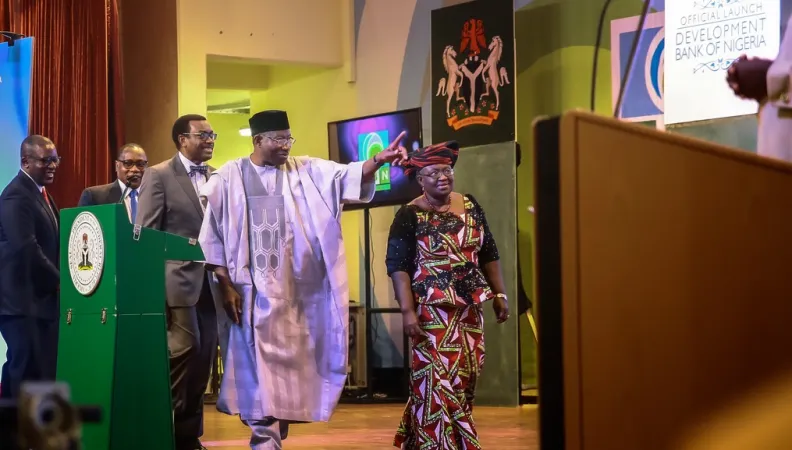Share the page
Widen credit access for SMEs in Nigeria
Project


-
Project start date
-
Status
Ongoing
-
Project end date
-
-
Project duration
-
7 years
-
AFD financing amount
-
US$ 130000000
-
Country and region
-
Location
-
Abuja, Nigeria
-
Type of financing
-
Beneficiaries
-
Nigeria Federal Government, Ministry of Finance Development, Bank of Nigeria, Nigerian Small and Medium Entreprises
Only few Nigerian SMEs have access to formal financing, despite the fact that they are essential to economic diversification. AFD supports the establishment of the Development Bank of Nigeria, so they can benefit from adapted loans.
Context
With the restructuring of the banking sector in 2009-2010, Nigerian banks increased their network of branches and slowly started to re-engage in financing activities in the private sector.
But the level of such financing is still insufficient. It represented less than 12% of GDP in 2013, as against an average of 50% in Sub-Saharan Africa. Furthermore, the recent progress did not really include small and medium-sized enterprises. Despite the fact that they account for the largest part of the Nigerian economy, SMEs are often forced to resort to informal funding or to self-financing.
Financial inclusion of SMEs, which generates added value and creates jobs, is yet a major challenge in Nigeria. Indeed, its economy is not diversified enough and the country faces high population growth and a high level of poverty and inequality.
In 2012, Nigeria adopted an ambitious public policy to promote financial inclusion, aiming at reducing the number of Nigerians excluded from the financial system to 20% by 2020, as against nearly 40% in 2012.
Description
The Federal Government of Nigeria inaugurated the Development Bank of Nigeria in March 2015, to assist SME financing.
AFD mobilized USD 130 million to support the establishment of this financial institution, also sponsored by the Federal government of Nigeria, the World Bank, the African Development Bank and KfW.
The project seeks to improving access of SMEs to medium and long term credit, by developing an array of financial products meeting the needs of both commercial banks and SMEs.
Its main objectives are:
- to strengthen the capacities of Nigerian banks in terms of SME financing;
- to finance SMEs via the Development Bank of Nigeria and local banks;
- to establish an SME loan guarantee Facility.
Impacts
- 230,000 SME loan beneficiaries;
- 450,000 jobs created;
- Edification of a sustainable financing system for SMEs;
- Diversification of the national economy.


